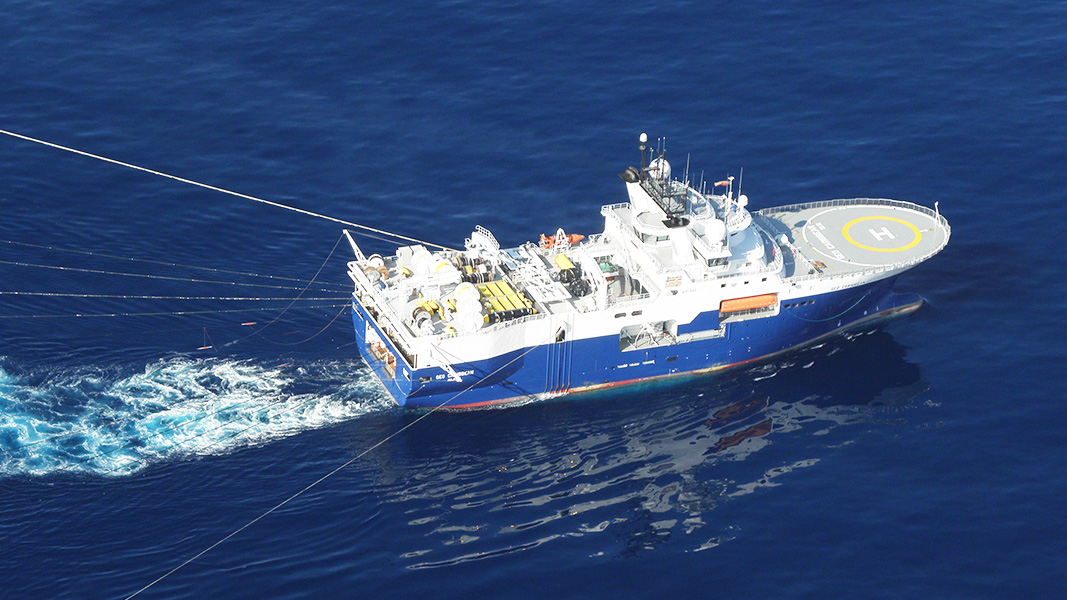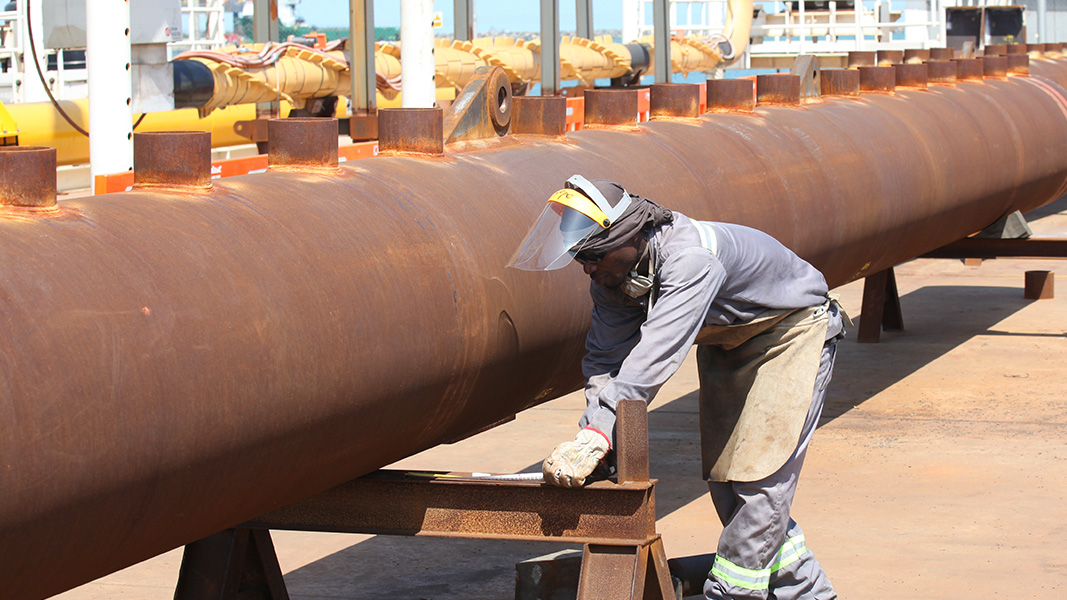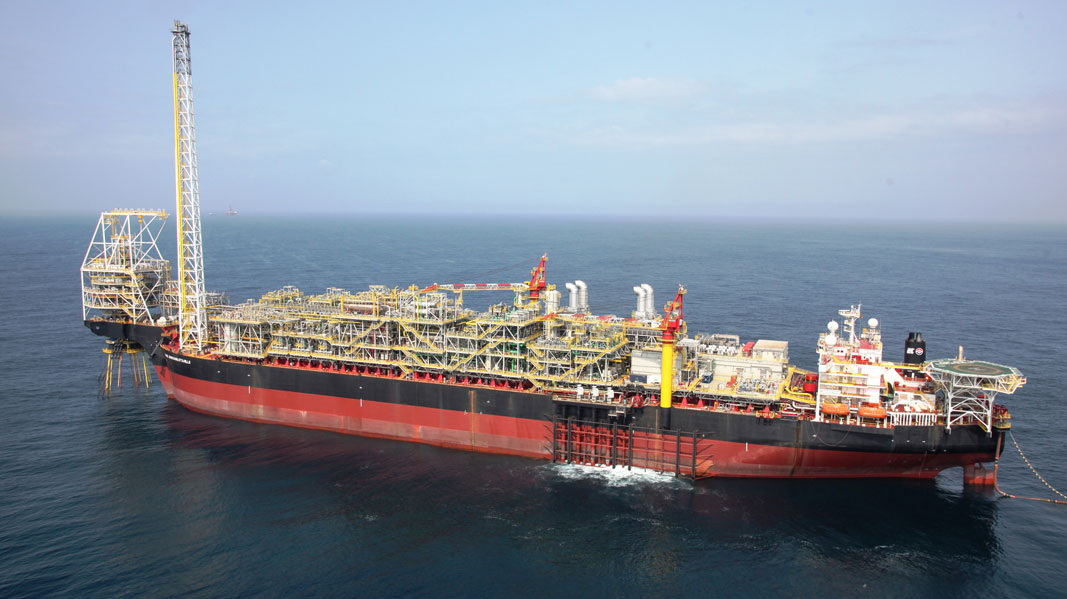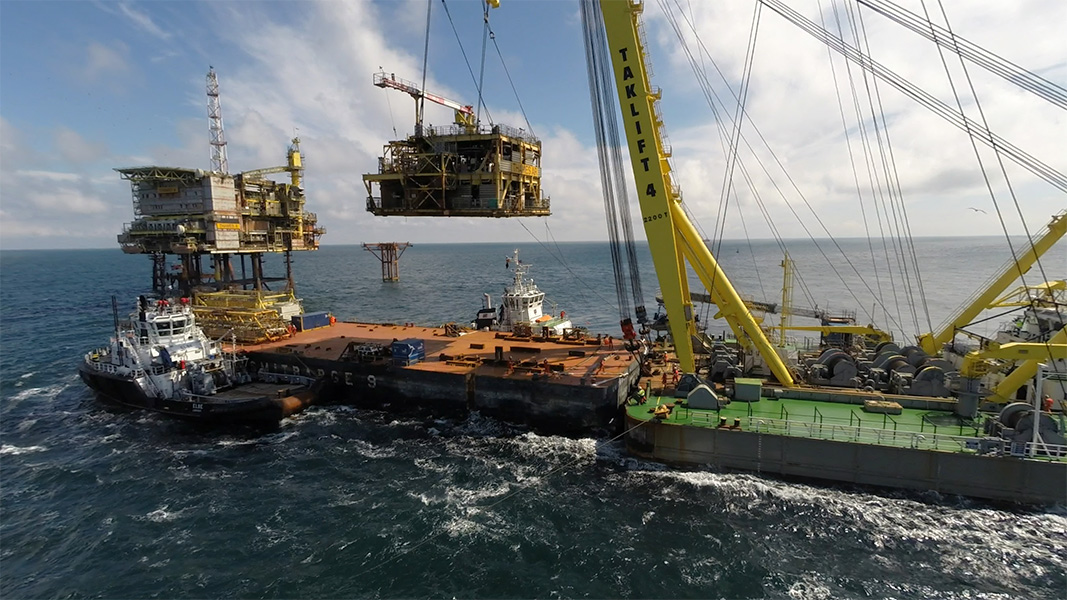At Tullow, we want our contribution to the global oil life cycle to bring tangible and sustainable value to the groups that should benefit from our presence.

Exploration & appraisal
2-10 year period
We collect and interpret seismic and geophysical data to assess potential oil in the ground. We drill an initial well and after a discovery, we drill appraisal wells and potential additional exploration wells to determine the size, quality and extent of the geological play. If there is no oil or it is not commercially viable, the well will be plugged and abandoned.
Investment by IOC
Seismic activity, drilling of exploration & appraisal wells.
Value created
Social investment projects e.g. improved infrastructure or access to water.

Development of discovery
3-10 year period
We begin work on a Plan of Development (PoD) once we have confirmed that the oil discovery we have made is commercially viable. The PoD involves extensive stakeholder engagement and must consider environmental, social, economic and operational issues. These plans are approved by governments and regulatory authorities and their implementation is carefully monitored.
Investment by IOC
Capital intensive period for IOC to develop field.
Value created
Extensive in-country activity during development phase e.g. increase in local jobs and suppliers.

Produce
20-50 year period
Successful developments should be carried out in the most cost-effective way, without compromising high safety standards, and with regard for the environment and local communities that may be affected by our work. Production can last many decades.
Investment by IOC
Investment to maintain maturing production.
Value created
Monetary value for host country from production tax and royalties.
Cost effective production provides high-margin cash flow to the IOC. Cash flow for the IOC is dependent on oil price and expenditure.
Continued local employment and use of local suppliers to support production operations.

Decommissioning
3-10 year period
When production ceases, facilities are decommissioned and the location is fully remediated.
Investment by IOC
Specialist skills for decommissioning to ensure full restoration of the site.
Value created
Legacy of skills built up through involvement in the oil and gas industry.
Local employment for demolition, waste management and fabrication.
Investment and returns
International oil company investment
An oil company will often carry the host government’s share of costs through to first oil. In addition to the capital invested, the oil company pays the host government a number of taxes as well as land rentals, training and ongoing licence costs. The oil company also undertakes capacity building programmes including skills, knowledge and technology transfer to maximise local business and workforce participation in the industry.
International oil company take
An agreement between the oil company and government determines how and when costs can be recovered and how production and revenues are shared. Typically, the oil company’s share of production or revenue is higher in the earlier years of production as costs are recovered in the form of allowable deductions against income tax or as an allocation of production, commonly known as ‘cost oil’.
In-country value creation
Creating shared prosperity is the key pillar of Tullow’s sustainability strategy. The area where we can create the most discretionary value is through foreign direct investment, local procurement, local employment and capacity building through skills, knowledge and technology transfer. The scale of the opportunity for local business contracts and jobs increases as a project moves from the exploration phase through to production.